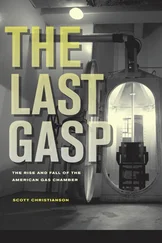Philippe Aubert de Gaspé - Cameron of Lochiel
Здесь есть возможность читать онлайн «Philippe Aubert de Gaspé - Cameron of Lochiel» — ознакомительный отрывок электронной книги совершенно бесплатно, а после прочтения отрывка купить полную версию. В некоторых случаях можно слушать аудио, скачать через торрент в формате fb2 и присутствует краткое содержание. Жанр: foreign_antique, foreign_prose, на английском языке. Описание произведения, (предисловие) а так же отзывы посетителей доступны на портале библиотеки ЛибКат.
- Название:Cameron of Lochiel
- Автор:
- Жанр:
- Год:неизвестен
- ISBN:нет данных
- Рейтинг книги:3 / 5. Голосов: 1
-
Избранное:Добавить в избранное
- Отзывы:
-
Ваша оценка:
- 60
- 1
- 2
- 3
- 4
- 5
Cameron of Lochiel: краткое содержание, описание и аннотация
Предлагаем к чтению аннотацию, описание, краткое содержание или предисловие (зависит от того, что написал сам автор книги «Cameron of Lochiel»). Если вы не нашли необходимую информацию о книге — напишите в комментариях, мы постараемся отыскать её.
Cameron of Lochiel — читать онлайн ознакомительный отрывок
Ниже представлен текст книги, разбитый по страницам. Система сохранения места последней прочитанной страницы, позволяет с удобством читать онлайн бесплатно книгу «Cameron of Lochiel», без необходимости каждый раз заново искать на чём Вы остановились. Поставьте закладку, и сможете в любой момент перейти на страницу, на которой закончили чтение.
Интервал:
Закладка:
Archibald Cameron of Lochiel, whom the harsh hand of misfortune had brought to an early maturity, knew not at first what to make of a boy noisy, troublesome and mocking, who seemed the despair alike of masters and students. To be sure, the boy had not all the fun on his own side. Out of twenty canings and impositions bestowed upon his class, Jules D'Haberville was sure to pocket at least nineteen for his share.
It must be acknowledged, also, that the older pupils, driven to the end of their patience, bestowed upon him sometimes more knocks than nuts; but you would have thought the youngster regarded all this as an encouragement, so ready was he to resume his tricks. We may add that Jules, without being vindictive, never wholly overlooked an injury. In one way or another he always made matters even. His satire, his home thrusts, which could bring a flush to the face of even the most self-possessed, served his purpose very effectually with the masters or with those larger students whom he could not otherwise reach.
He had adopted it as his guiding principle, that he would never acknowledge himself beaten; and it was necessary, therefore, for his opponents, when weary of war, to make him proposals of peace.
The reader will doubtless conclude that the boy was cordially disliked; on the contrary, every one was fond of him; he was the pet of the college. The truth is, Jules had such a heart as pulses all too rarely in the breast of man. To say that he was generous to a fault, that he was ever ready to defend the absent, to sacrifice himself in order to conceal the faults of others, would not give an adequate description of his character. The following incident will reveal him more effectively: When he was about twelve years old, a senior student got out of patience and kicked him; with no intention, however, of hurting him much. It was contrary to Jules's code of honor to carry complaints to the masters. He contented himself with replying to his assailant: "You are too thick-headed, you big brute, for me to waste any sarcasm on you. You would not understand it. One must pierce your hide in some other way; but be patient, you will lose nothing by waiting!"
After rejecting certain more or less ingenious schemes of vengeance, Jules resolved to catch his enemy asleep and shave his eyebrows – a punishment which would be easy to inflict, as Dubuc, the youth who had kicked him, was a mighty heavy sleeper. This plan had the further advantage of touching him on a most sensitive point, for he was a handsome fellow and a good deal of a dandy.
Jules had just decided on this revenge, when he heard Dubuc say to one of his friends, who had rallied him on looking gloomy:
"Indeed, I have good reason to be, for I expect my father to-morrow. I have got into debt with the shop-keepers, hoping that my mother would come to Quebec ahead of him, and would relieve me without his knowing anything about it. Father is close-fisted and violent. He will probably strike me in the first heat of his anger; and I don't know where to hide my head. I have a mind to run away until the storm is over."
"Oh," said Jules, "why don't you let me help you out of the scrape?"
"The devil you say!" exclaimed Dubuc, shaking his head.
"Why," said Jules, "do you think that on account of a kick, more or less, I would leave a fellow-student in a scrape and exposed to the violence of his amiable papa? To be sure, you almost broke my back, but that is another affair, which we will settle later. How much cash do you want?"
"My dear fellow," answered Dubuc, "that would be abusing your kindness. I need a large sum, and I know you are not in funds just now; for you emptied your purse to help that poor woman whose husband was killed the other day."
"A pretty story," said Jules. "As if one could not always find money to save a friend from the wrath of a father who is going to break his neck! How much do you want?"
"Fifty francs!"
"You shall have them this evening," said the boy.
Jules, an only son, belonging to a rich family, indulged by everybody, had his pockets always full of money. Father and mother, uncles and aunts, godfathers and godmothers, they all kept loudly proclaiming that boys should not have too much money to spend. At the same time they outdid each other in surreptitiously supplying his purse!
Dubuc, however, had spoken truly; the boy's purse was empty for the moment. Fifty francs was, moreover, quite a sum in those days. The King of France was paying his red allies only fifty francs for an English scalp. His Britannic Majesty, richer or more generous, was paying a hundred for the scalp of a Frenchman!
Jules did not care to apply to his uncles and his aunts, the only relations he had in the city. His first thought was to borrow fifty francs by pawning his gold watch, which was worth at least twenty-five louis. Revolving the matter, however, he bethought himself of a certain old woman, a servant of the house, whom his father had dowered at her marriage, and to whom he had afterward advanced enough money to set her up in business. The business had prospered in her hands. She was a widow, rich and childless.
There were difficulties to surmount, however. The old dame was rather avaricious and crusty; and on the occasion of Jules's last visit they had not parted on the best terms possible. She had even chased him into the street with a broomstick. The boy had done nothing more, however, than play her a little trick. He had given her pet spaniel a dose of snuff, and when the old lady ran to the help of her dog, who was conducting himself like a lunatic, he had emptied the rest of the snuff-box into a dandelion salad which she was carefully picking over for her supper.
"Hold on, mother," he cried, as he ran away, "there is a good seasoning for you."
Jules saw that it was very necessary to make his peace with the good dame, and hence these preliminaries. He threw his arms about her neck on entering, in spite of the old woman's attempt to shield herself from these too ardent demonstrations, after the way he had affronted her.
"See, my dear Madeleine," he cried, "I am come to pardon thine offenses as thou must pardon all who have offended against thee. Everybody says thou art stingy and revengeful, but that is no business of mine. Thou wilt get quit of it by roasting a little while in another world. I wash my hands of it entirely."
Madeleine hardly knew whether to laugh or be angry at this fantastic preamble; but, as she was fond of the boy, for all his tricks, she took the wiser course and smiled good-naturedly.
"Now that we are in a better humor," continued Jules, "let us proceed to business. I have been a little foolish and have got into debt, and I dread to trouble my good father about it. In fact, I want fifty francs to settle the unfortunate business. Can you lend me that much?"
"Indeed, now, Master D'Haberville," answered the old dame, "if that were all I had in the world, I would give it all to save your father any trouble. I owe so much to your father."
"Tut!" said Jules, "if you talk of those ha'pennies, there's an end of business. But listen, my good Madeleine, since I might break my neck when I least expect it, or still more probably when climbing on the roof or among the city bells, I must give you a bit of writing for security. I hope, however, to pay you back in a month at latest."
At this Madeleine was seriously offended. She refused the note, and counted him out the money. Jules almost choked her with his embrace, sprang through the window into the street and hurried back to the college.
At recess time that evening Dubuc was freed from all anxiety on the score of his amiable papa.
"But remember," said D'Haberville, "I still owe you for that kick."
"Hold on, dear boy," exclaimed Dubuc, with feeling. "I wish you would settle that right now. Break my head or my back with the poker, only let us settle it. To think that, after all you have done for me, you are still bearing me a grudge, would be nothing less than torture."
Читать дальшеИнтервал:
Закладка:
Похожие книги на «Cameron of Lochiel»
Представляем Вашему вниманию похожие книги на «Cameron of Lochiel» списком для выбора. Мы отобрали схожую по названию и смыслу литературу в надежде предоставить читателям больше вариантов отыскать новые, интересные, ещё непрочитанные произведения.
Обсуждение, отзывы о книге «Cameron of Lochiel» и просто собственные мнения читателей. Оставьте ваши комментарии, напишите, что Вы думаете о произведении, его смысле или главных героях. Укажите что конкретно понравилось, а что нет, и почему Вы так считаете.












